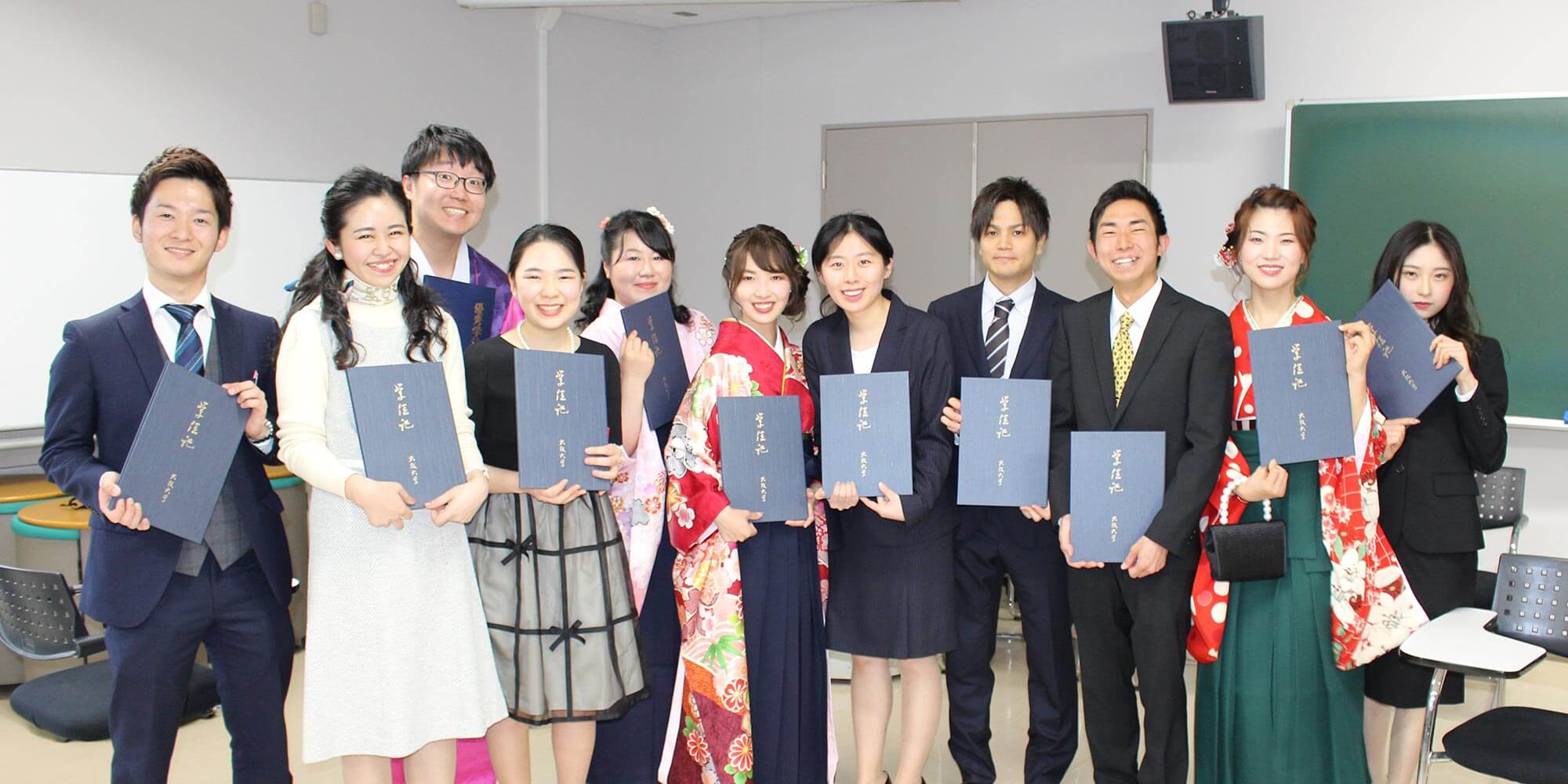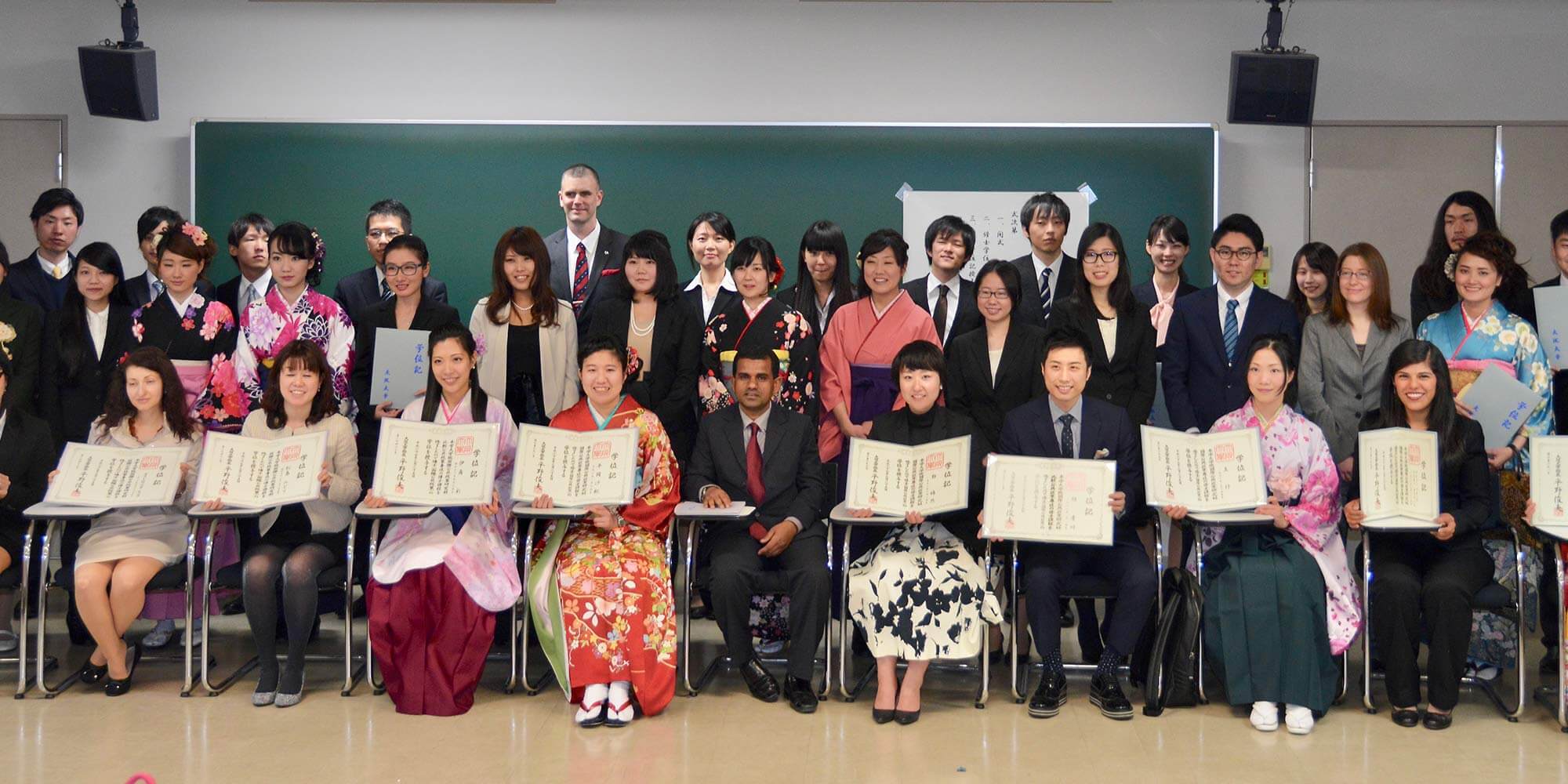Diploma Policy (policy of awarding a master’s degree)
Based on the diploma policy of the University of Osaka, the master’s course of Osaka School of International Public Policy (OSIPP) sets its diploma policy from the following viewpoints:
- Ability to apply fundamental knowledge in an appropriate manner
- Ability to think and make judgments logically in order to solve issues
- Ability to communicate with people around the world
- Ability to live harmoniously within the international community
- Ability to take action as an autonomous and moral agent
The master’s degree in international public policy is awarded to students who take a total of 30 or more credits in the designated subjects, submit a master’s thesis, and pass the thesis review.
In order to receive a master’s degree:
- The student must have acquired the research skills relevant to his/her area of expertise, or the capability to work in professions that require advanced expertise.
- The master’s thesis must include research content that contributes to the advancement of the area of specialization.
- The master’s thesis must be written clearly and plainly, and a presentation/discussion befitting academic research must be conducted in a thesis review, held by a Dissertation Committee, and also in a final examination.
- The thesis is given a comprehensive assessment, on the following qualities:
-
- Novelty: the content is new and original,
- Succession: previous studies are read extensively, and the thesis’s stance in relation to these studies is clearly stated
- Validity: the argument is developed based on reliable sources and data,
- Logicality: the argument is developed logically,
- Clarity: clear and appropriate expressions are used.
The thesis review is conducted by a Dissertation Committee, which is appointed at a Faculty Meeting; the final decision is made at a Faculty Meeting. The master’s course requires two years to complete, but there is an early graduation system, by which a student recognized to have produced outstanding results, may receive a master’s degree after one year.
Diploma Policy (policy of awarding a doctoral degree)
Based on the diploma policy of the University of Osaka, the doctoral course of Osaka School of International Public Policy (OSIPP) sets the diploma policy from the following viewpoints;
Students at OSIPP will be awarded a doctor’s degree if they have acquired the abilities with which to propose policies in order to solve global issues with a view to the international public good, or contemporary issues in Japanese society using creative methods of analysis, based on advanced academic training.
OSIPP confers a doctor’s degree in International Public Policy, Law or Economics on students who earn over 8 credits in the designated subjects, have submitted a doctoral thesis produced with the necessary research guidance, and pass the doctoral thesis review. Students will receive thesis guidance from one principal supervisor, and two sub-supervisors, who will assist the students to produce a creative doctoral thesis.
In order to receive a doctoral degree:
- Students must have acquired sufficient overall knowledge of area surrounding the content of their doctoral thesis, and the ability to pursue research that seeks the truth, as independent researchers.
- The doctoral thesis must possess high academic value in the area of expertise.
- The doctoral thesis must be written clearly and plainly, and a presentation/discussion befitting academic research must be conducted in a thesis review, held by a Dissertation Committee, and also in a final examination.
- The thesis is given a comprehensive assessment, on the following qualities:
- Novelty: the content is new and original,
- Succession: previous studies are read extensively, and the thesis’s stance in relation to these studies is clearly stated,
- Validity: the argument is developed based on reliable sources and data,
- Logicality: the argument is developed logically,
- Clarity: clear and appropriate expressions are used.
The thesis review is conducted by a Dissertation Committee, which is appointed at a Faculty Meeting; the final decision is made at a Faculty Meeting. The doctoral course requires three years to complete, but there is an early graduation system, by which a student recognized to have produced outstanding results, may receive a doctor’s degree after one year.







